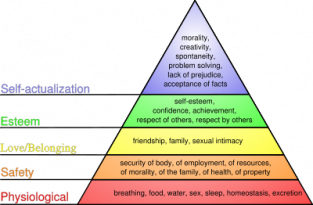|
In 1943, Abraham Maslow made one of the biggest contributions of the century to the study of human psychology. He created and published what is commonly known as 'The Human Hierarchy of Needs'. This post will explain the hierarchy (heavily citing Wikipedia). The next posts will apply this old-but-still-relevant pyramid to our everyday lives and, especially, to entrepreneurs seeking to develop their products.
0 Comments
Leave a Reply. |
AuthorEverything you never wanted to know about the author is on this web site : www.jeanfahmy.com Categories
All
Archives
December 2014
|

 RSS Feed
RSS Feed